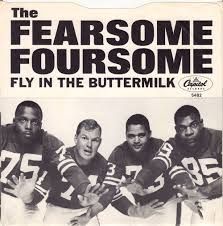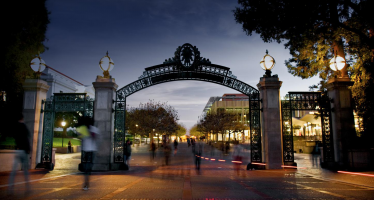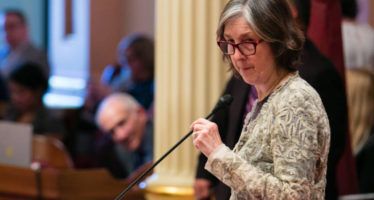1st and goal for NFL in L.A.

 After years of speculation, planning, wrangling and setbacks, pro football is as close to returning to Los Angeles as it’s ever been. But even this late in the game, a touchdown is by no means assured for the NFL.
After years of speculation, planning, wrangling and setbacks, pro football is as close to returning to Los Angeles as it’s ever been. But even this late in the game, a touchdown is by no means assured for the NFL.
Even though there’s a clear interest and ample money behind a new stadium, the NFL’s complex business politics could well delay a deal for so long the logistical stars will come out of alignment.
The drama currently revolves around a huge plot of land scooped up by Stan Kroenke, the storied and reclusive owner of the St. Louis Rams, who played in Los Angeles from 1946 to 1979, and in Anaheim from 1980 to 1994. Despite competing schemes from other potential owners for an L.A. stadium complex downtown and in the city of Carson, Kroenke bought a parcel from Wal-Mart. The 60 acre deal cost him over $100 million, according to the Los Angeles Times.
Wal-Mart never constructed a store on the enormous lot because the retail giant was shut down by locals who didn’t want it in town. But the company kept the property until Kroenke came calling.
As it happens, Ann Walton Kroenke, the daughter of Wal-Mart co-founder Bud Walton, is Kroenke’s wife. Stan Kroenke sat on Wal-Mart’s board until 2011, developing sites for new locations along the way.
So when Kroenke began meeting with Terry Fancher, executive managing director of Stockbridge Capital, the logic of a new NFL stadium was already in place. Fancher and Kroenke hammered away “on a deal to transform the proposed mixed-use project in Inglewood into a hub of sports, retail, offices and entertainment,” the Times reports. “In late spring, Kroenke engaged HKS Inc., the firm that drew up plans for the billion-dollar AT&T Stadium that houses the Cowboys, to design the stadium.”
Maneuvers and regulations
That’s where the National Football League comes in. Despite signaling a strong desire to see pro football in Los Angeles soon, the NFL hasn’t been able to remain consistent.
Art Rooney II, the league’s stadium committee chairman, finally went on the record about Kroenke’s apparent plan. And he doesn’t seem to like it. “There are still cards to be played,” he told the Times. “There’s still a process that has to work its way out, and we don’t know what the outcome’s going to be yet. That’s why we have league committees and approval processes.”
Meanwhile, reports Deadspin, “The NFL won’t move a franchise to L.A. until a permanent site for the team is established.” What’s that mean? “The three most likely NFL teams to move to Los Angeles — the Oakland Raiders, San Diego Chargers and St. Louis Rams — will be staying where they are next season,” even though each team has “expiring leases with their current stadiums.”
Wary players
The uncertainty bred by the league is amplifying longstanding suspicion and wariness among the other players involved in a move to Los Angeles. Teams want a favorable deal.
While the Rams, for instance, have been threatening St. Louis with a move if the city won’t refurbish the stadium it used to lure the team 20 years ago, no potential L.A. team wants to be paired up with a partner that won’t swiftly and securely attract fans.
At the same time, L.A. city officials don’t want to cough up fresh spending to seal the deal, or impose new taxes to accomplish the same.
And neither Kroenke nor his competitors want to be ensnared in a morass of city regulations. Anschutz Entertainment Group, the most prominent concern offering an alternative to Kroenke’s site, wrung a six-month deadline extension from the L.A. City Council last October for closing a deal with an NFL team.
As early as 2011, Reuters reports, AEG had managed to secure a whopping $700 million agreement for the naming rights to a hypothetical L.A. stadium downtown. But even AEG’s “seemingly endless stream of money” couldn’t “get the job done,” as Daniel Durbin, Director of the USC Annenberg Institute for Sports, Media and Society, told Reuters.
With only a few more plays to run as the clock ticks down, pro football may offer L.A. fans no more than another run at the goal line that ends in futility.
Related Articles
Poll: Californians think higher ed is too expensive, love the quality
Californians are concerned over the cost of the state’s public colleges and universities, just as two of the state’s three
Gerawan Farming files constitutional challenge against ALRB
Gerawan Farming is fed up. On Dec. 16, Gerawan filed a constitutional challenge against the California Agricultural Labor Relations Board, with the United
California Senate bringing in outside firms to investigate sexual harassment allegations
Senate President Pro Tem Kevin de León, D-Los Angeles, announced on Tuesday that the state Senate will hire outside firms to




